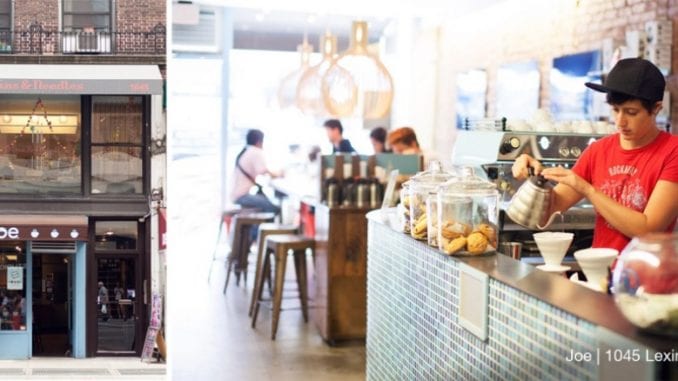
Joe Coffee just received an investment from Union Square Hospitality, the company founded by restaurant guru Danny Meyer. Jonathan Rubinstein, owner and founder of Joe, sheds light on what this investment means for his company and for the future of coffee.
BY CHRIS RYAN
SPECIAL TO BARISTA MAGAZINE
Since opening its first store in 2003, New York City-based Joe Coffee has enjoyed a slow but steady trajectory of growth, during which it has added an education center, a wholesale department, and a roasting operation (launched in 2013) in addition to expanding its retail presence to 16 stores. But undoubtedly the company’s biggest step forward came earlier this week, when Union Square Hospitality Group—the hospitality company founded by Danny Meyer that owns several acclaimed New York City restaurants—announced an investment in Joe Coffee. Though details of the deal were not disclosed, the investment will allow Joe Coffee to grow its presence in New York, Philadelphia (where it has two stores), and beyond. For more on what this investment will mean for Joe Coffee, as well as how the company grew to this point, we talked to Joe Coffee founder Jonathan Rubinstein.
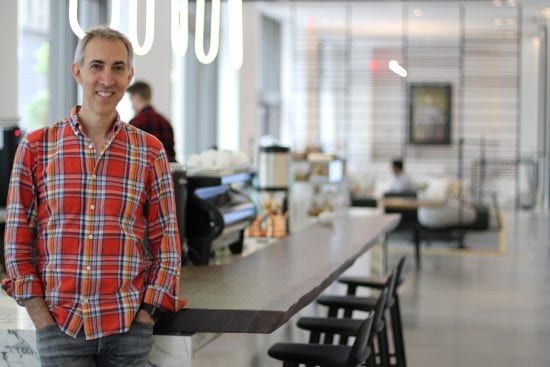
Chris Ryan: With the announcement of this deal, what comes to mind when you look back at the ascendance of Joe Coffee?
Jonathan Rubinstein: We have had this very organic growth, and I don’t think a lot of people realize quite how long we’ve been doing this. This summer we’ll be 14 years old—that is forever in coffee years! When we started in New York City, there was Ninth Street Espresso in the far East Village, and quality coffee besides that was diner coffee and Starbucks. There was this crazy free market and no one even had any idea what specialty coffee was.
Looking at New York now, it’s the opposite of what it was. Now it’s the most saturated city with great coffee that I can think of, with probably 75 stores or multi-unit groups of quality coffee. Everybody expects great coffee when they walk into a coffee bar—they’re not willing to settle for less. This past week has been a reflective time for me, and it’s amazing to look at both our growth and the coffee growth of the entire city. It’s mind-boggling to me.

CR: How did Danny Meyer’s entity come to invest in Joe Coffee, and why did you feel now was the right time to take investment in the company?
JR: About three years ago, when you started hearing about all these other coffee companies being invested in, we sort of wondered: ‘How are we going to compete with them if we don’t have money? How will we grow?’ So we actually sought it out—we went to an investment bank and embarked on this long process of finding an investor. But when the offers came in with plans for what they were going to do for us, they felt mostly really yucky. In some cases we felt under-valued, in others we felt they wanted to dumb us down to make money. None of the potential investors really cared about the craft.
So ultimately we didn’t make a deal and went back to drawing board, and that’s when we heard that Danny might be interested. I’ve known him for a long time—we’re both in New York food and have similar values, and we’ve done wholesale business with some of his restaurants. We had the opportunity to get into a room with his team that was perhaps looking for an investment. We took the meeting, and it was incredible and it just went from there. We had similar visions for what we wanted to do, and they sort of hit everything we were looking for.
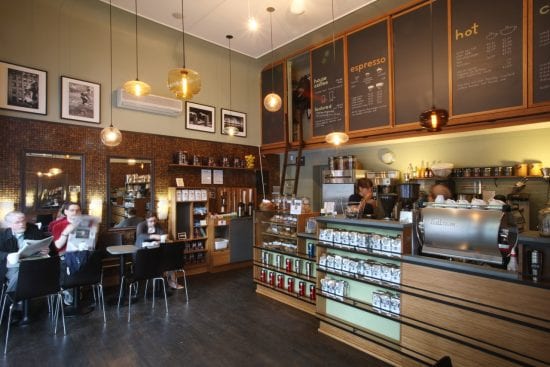
CR: What will this investment allow you to do with Joe Coffee?
JR: So much. For one, we can perfect the stores that we have. A lot of them need rehabbing, retrofitting, and better equipment; when you only have your existing cashflow, it’s very hard to justify the expense of improving them. So that’s one thing. Another is growth: We’re looking to do five more stores this year, which is a lot for us. And we want to do them right and take risks that we haven’t been able to take before in terms of location, space, and build-outs. We want to buy even better green coffee and expand our buying practices. We want to invest in the infrastructure of our team—we have a really solid team in our offices but we desperately need more to do everything right. We’re looking to build a new training center where we feel really proud when wholesale customers come in. And we’d like to experiment and innovate. There’s just so much we can do with both the money and the expertise that Union Square brings us.
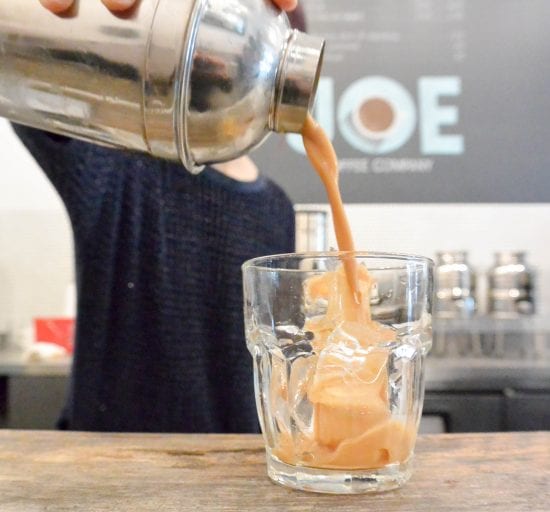
CR: You expect Joe Coffee to expand into other markets as well?
JR: We do plan to open in two or three new cities in the next five years. In 2017 we’re committed to New York, but in 2018 we hope to find a great new city. I don’t know necessarily where that’s going to be; we don’t know where certain opportunity is going to knock. I think probably we’ll try something that is on the East Coast where we can get there easily. I think we’ll probably open more in Philadelphia because we’ve got two stores there. I think part of the trick for us is to be a pioneer and try to get there before a lot of other shops do. It worked for us really well here in New York, being the first in most of the neighborhoods we’re in. If we can keep doing that in other cities, we’ll create brand loyalty. If we can capture them first and make them fall in love with us, we have them hopefully for life.
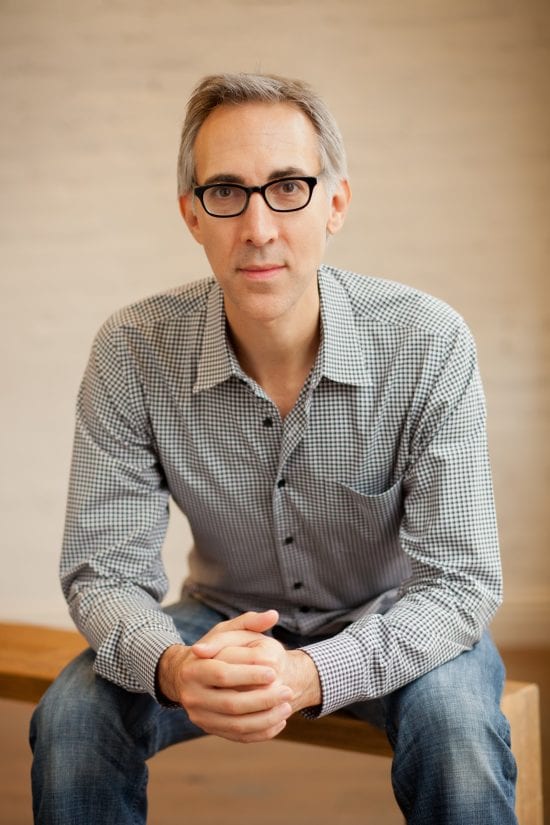
CR: Finally, Joe Coffee has experienced a lot of growth in the last (almost) 14 years, but you and your investor clearly feel there’s much more growth still ahead. How do you feel about the specialty coffee market and its potential ceiling?
JR: My gut always says that, unlike things like frozen yogurt or cupcakes, coffee is not a trend. It’s a part of people’s daily lives—people drink coffee typically 14 times a week 52 weeks a year. There’s been so much attention for great coffee the last couple years, and I feel like once people discover it there’s no going back. Even though New York City has so much amazing coffee now, our numbers keep getting better as we continue to open. I do believe New York City is particularly saturated, as are some of the other cities where our contemporaries have opened. But there are also so many places that aren’t. I think that investors as well see a lot more room for growth in this market. We met with 10 fairly major firms who had done their homework and want in on this space. I think this is here to stay and it’s just going to grow, and as a country I think we’re nowhere near saturation now.
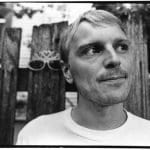 ABOUT THE AUTHOR
ABOUT THE AUTHOR
Chris Ryan is Content Director at Sustainable Harvest Coffee Importers in Portland, Ore. He previously spent four and a half years as Editor of Fresh Cup Magazine.

